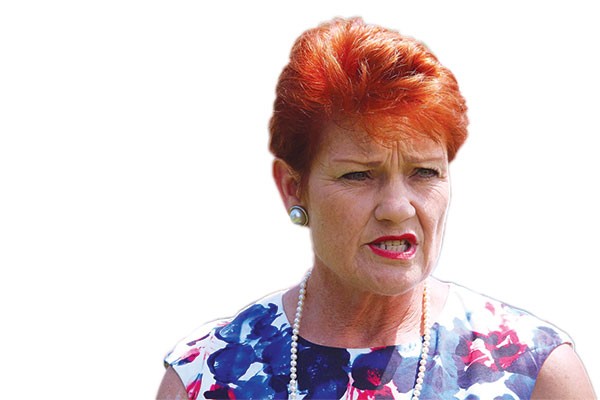The recent state election in Western Australia (WA) has swept a new Labour government under Mark McGowan to power, ousting two-term Liberal Premier Colin Barnett. As of writing, Labour is resting on 38 seats in the 59-seat legislative assembly, set to rise as high as 41. It’s one of the greatest swings in WA political history and one of the worst defeats the Liberals have ever faced there. It’s a serious warning sign for the ruling Liberal National Party (LNP) government in Canberra, less than a year after its own electoral collapse left it with a fingernail grip on the federal senate. But an early Liberal decision to preference Pauline Hanson’s One Nation over traditional coalition allies has had an equally profound impact on Australian politics.
The ‘second coming’ of One Nation as a major force in Australian politics was an unlikely one, as the party was largely written off at the end of the 2000s. Indeed, at the last state election in 2013 One Nation did not even stand candidates in WA. Pauline Hanson’s recapture of the party, however, has come at just the right moment to ride a new wave of deeply reactionary populist sentiment. Their ideological outlook has shifted from loosely cobbled together protectionism founded on fervent anti-Asian rhetoric to loosely cobbled together protectionism founded on fervent anti-Muslim rhetoric.
Hanson returned to the fold in 2013, 11 years after being ousted as leader and leaving the party. Retaking the party leadership in 2014, she stood in the 2015 Queensland state election, falling just 114 votes short of unseating the sitting LNP MP Ian Rickuss. That year saw its own surge in Australian far-right populism in the form of the brief lived Reclaim Australia movement. Spurred on by the December 2014 Sydney Lindt Café siege and the rise of ISIL internationally, Reclaim harnessed a long festering national paranoia whipped along by reactionary media figures and Tony Abbott’s ruling LNP government. Though largely spent by the ‘14, the movement held together a fractious tent of reactionary suburbanites, Christian fundamentalists, neo-fascist sects, middle class financial backers, and garden variety racists long enough to mobilise thousands of people in 16 major centres in April and July 2015. Hanson herself spoke at the largest Reclaim rally to a crowd of 1,200 in Brisbane. Reclaim endured a process of prolonged implosion throughout 2016, right as One Nation swept back into the federal senate. The last hurrah of the Reclaim movement came in Bendigo where the neo-nazi splinter group United Patriots Front managed to draw over a thousand supporters to an anti-mosque demonstration in 2015. But, by that December, attempts at a ten-year commemoration of the 2005 Cronulla Race Riots drew only a few dozen supporters.
Although, in WA, the result was not what One Nation had hoped (polling 13% only weeks before election day), with 4.8% the party is back in the WA legislative council. One seat is all but confirmed in the upper house, another one or two still well within reach as counting continues. Last year’s federal election saw the party pull nearly 600,000 votes (4.3%), giving them four seats in the senate, propelling them from unrepresented anywhere to being the fourth largest party. Add the defection of Queensland legislative assembly’s MP Steve Dickson from LNP to One Nation, the party now holds a commanding position in the federal senate, with seats in two state parliaments and strong polls in multiple states with upcoming elections (over 20% in Queensland). Though defections, infighting and weak results hamper the party, overall One Nation continues to rebuild and entrench as a major Australian political force.



